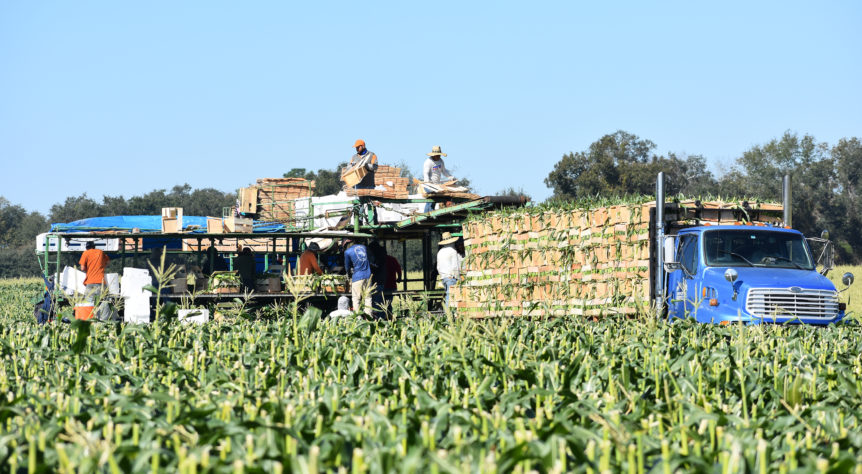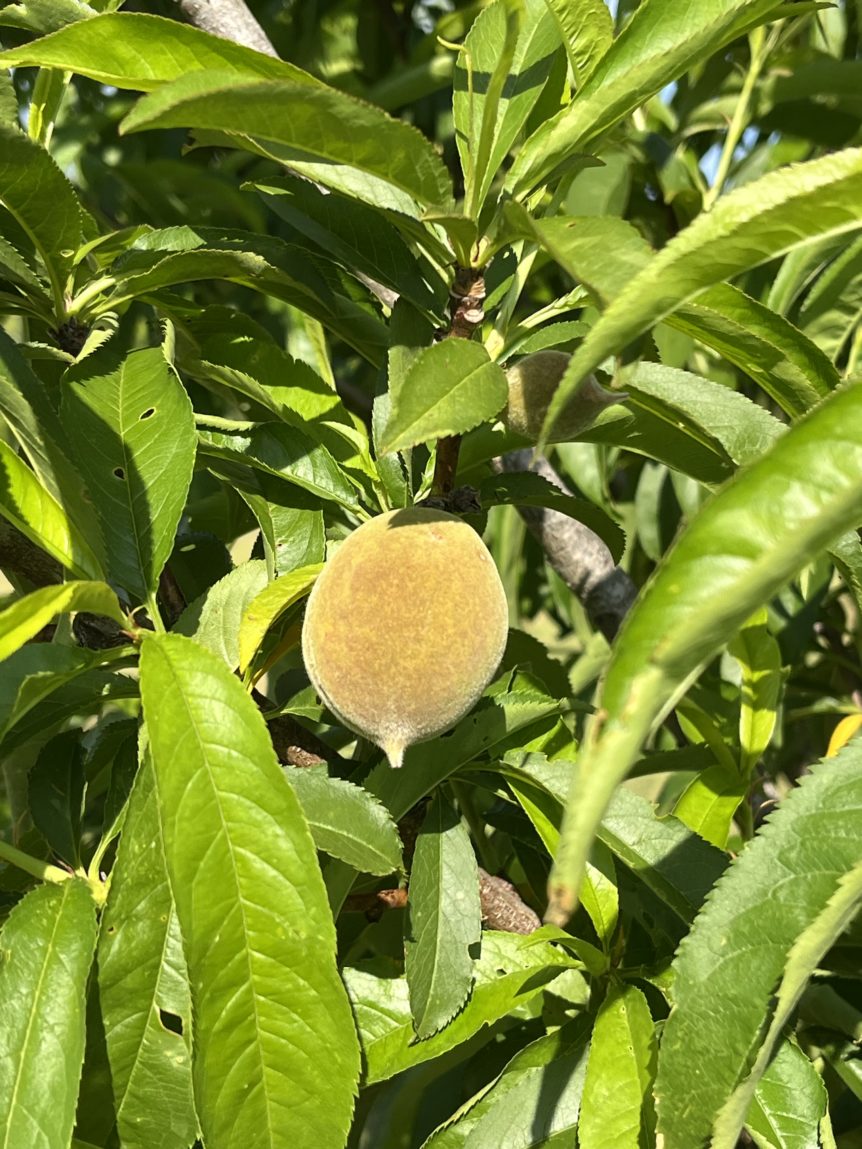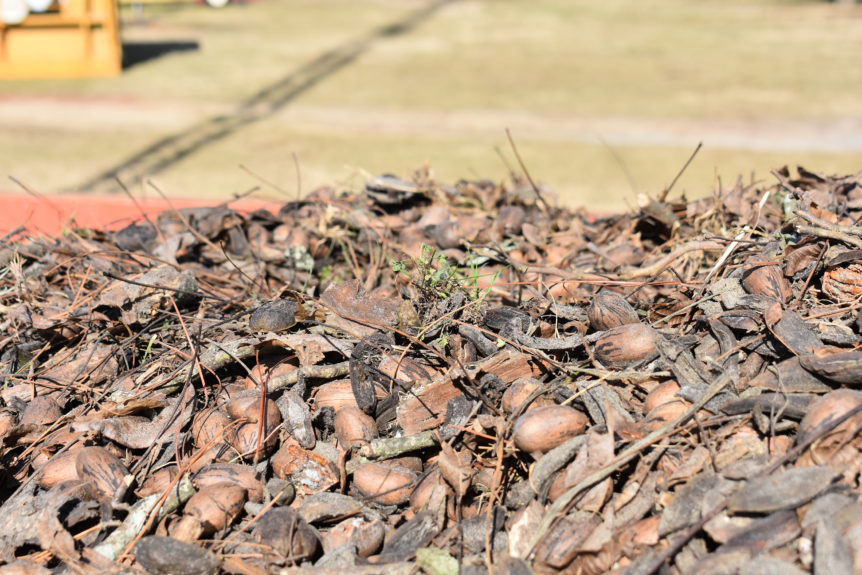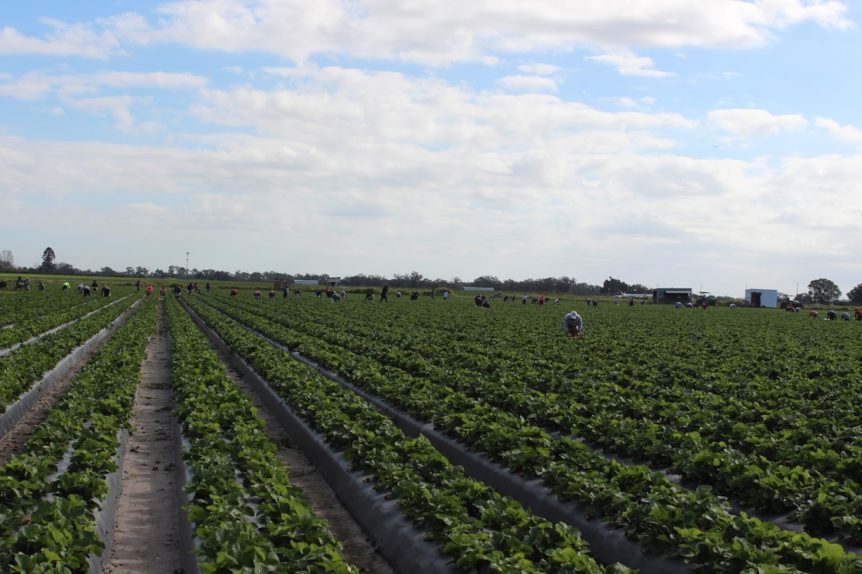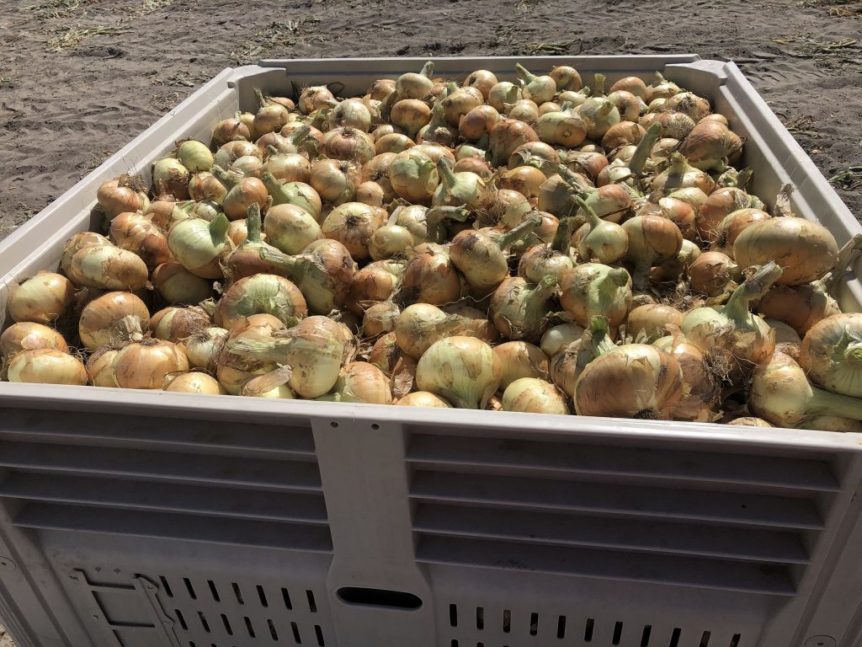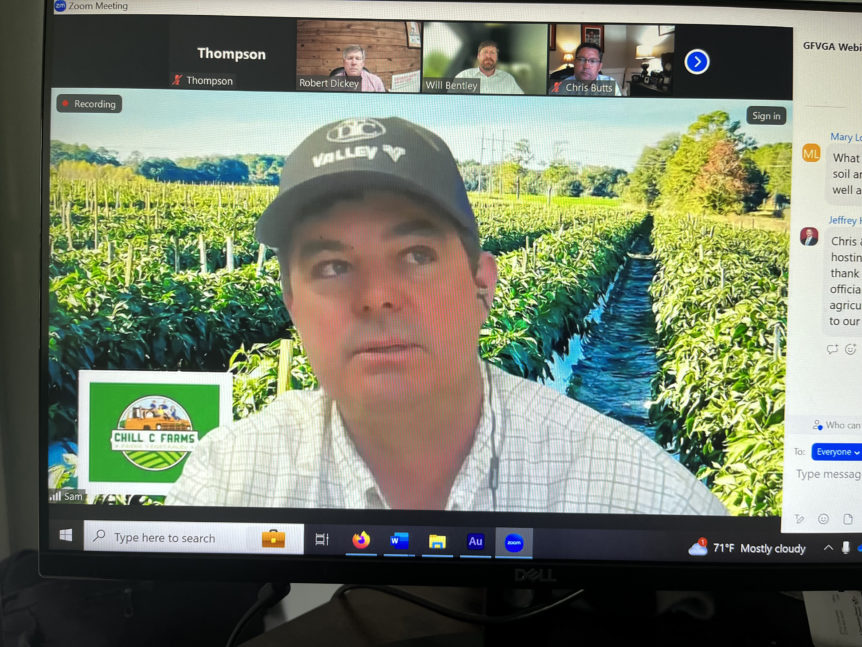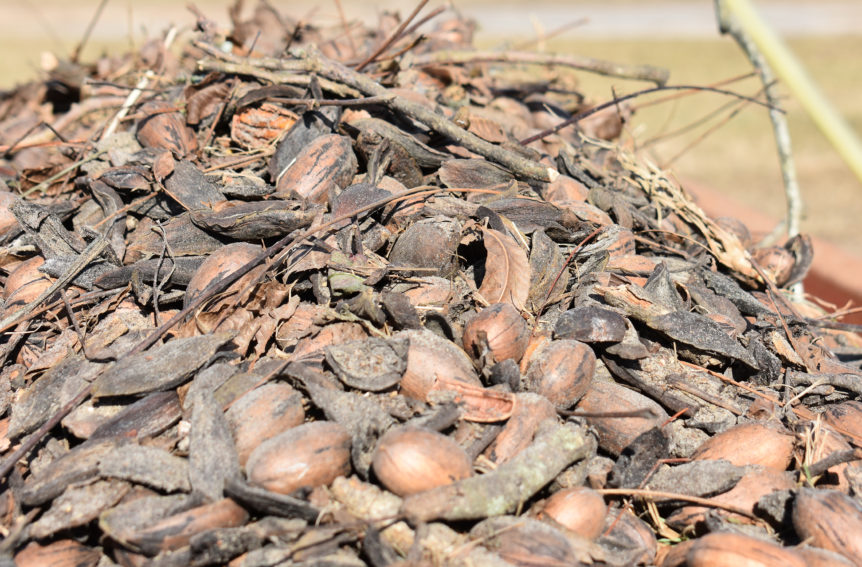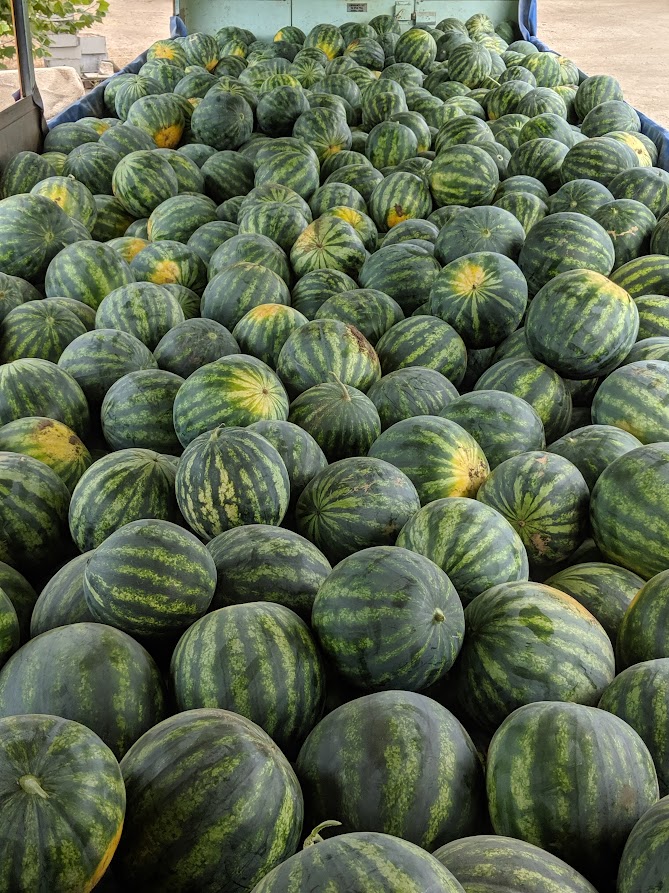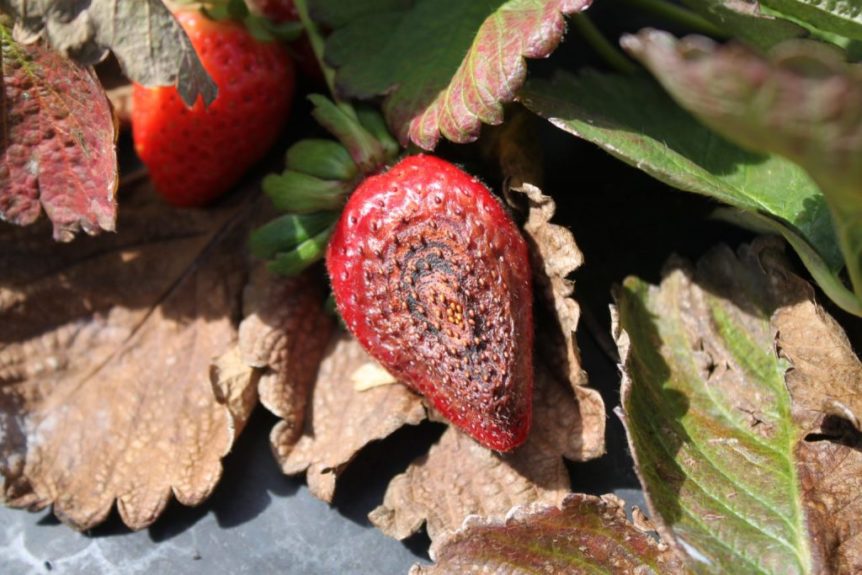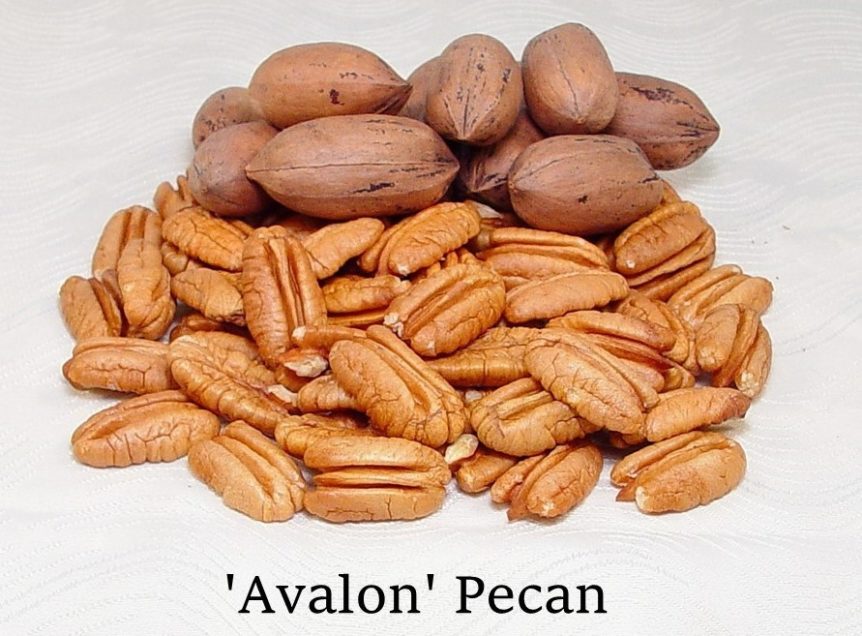By Clint Thompson The Georgia Fruit and Vegetable Growers Association (GFVGA) encourages specialty crop producers to respond promptly and accurately to labor surveys inquiring about H-2A and the Adverse Effect Wage Rate (AEWR). Chris Butts, GFVGA executive director, said farmers should expect the surveys to arrive via mail at any time. Growers’ response will help leaders with the U.S. Department …
Sweet Turnaround: Bountiful Peach Crop for Georgia Producers
By Clint Thompson Mid-April arrived, and with it came a spring heat wave for the first time this year. The threat of freezing temperatures should be over, meaning peach growers can celebrate. “We should have plenty of peaches,” said Jeff Cook, University of Georgia Cooperative Extension agriculture and natural resources agent for Peach and Taylor counties. “Now, our sales force …
Low Pecan Prices Don’t Figure to Increase Anytime Soon
By Clint Thompson The five-year average price for pecans, from 2019 to 2023 was $1.69 a pound, which was the market price growers received last year. It does not appear to be going up any time soon, explains Lenny Wells, University of Georgia Extension pecan specialist. “Average price last year across all varieties season long was $1.69. That’s a lot …
Awaiting Approval: Georgia Senator Discusses Foreign Ownership of Land Bill
By Clint Thompson Georgia’s bill to restrict foreign ownership of land is an important piece of legislation impacting food and national security. SB420 seeks to limit property rights for certain foreign ‘agents’ and entities by prohibiting them from purchasing land used for farming or within a 10-mile radius of a military base or installation. It refers to those considered a …
Sweet Reviews: Vidalia Onions Under the Spotlight on Primetime TV
VIDALIA, GA – Fields of green stretch in every direction this time of year, starting just outside the quaint downtown of Vidalia itself and connecting the other small, Georgia towns in the 20-county official onion growing region. Any direction you drive you see acres and acres – more than 10,000 in all — of Georgia’s trademarked crop, the sweet Vidalia onion, …
GFVGA Executive Director ‘Very Pleased’ with Legislative Session
By Clint Thompson Georgia’s legislative members with ties to agriculture represent a valuable asset for the state’s fruit and vegetable industries. It was on display Tuesday as state senators Russ Goodman (R-Cogdell) and Sam Watson (R-Moultrie), and House Rep. Robert Dickey provided updates on the key issues they debated on during this year’s legislative session during a GFVGA webinar. “I …
Pecan Water Needs: Extension Specialist Highlights Irrigation During UGA School
By Clint Thompson One of the most significant investments a pecan producer can make with their crop is with irrigation. If a grower cannot water their trees regularly, especially during times of the season when the trees need it the most, they will not be able to capitalize with high yields. It is a message that Lenny Wells, University of …
Running Behind: South Georgia Melon Growers Delayed in Plantings
By Clint Thompson South Georgia watermelon producers are behind in their plantings this spring, according to one University of Georgia Extension county agent. Excessive rains are the reason why, said John Bennett, Wilcox County Extension Coordinator. “We really just got going good with our plants (last week). A lot of guys poked plants in starting Monday. We’re probably 7 to …
Under Attack: Strawberry Diseases Impacting Georgia Crop
By Clint Thompson Disease development is normally synonymous with wet weather. It is no different with Georgia’s strawberry crop, which is under assault from multiple diseases. Phil Brannen, University of Georgia Cooperative Extension fruit disease specialist, highlighted some of those diseases that Georgia growers are already observing. “The thing that we’re seeing already is this neopestalotiopsis. We’re just trying to …
Under the Microscope: Scab Resistance Remains Top Priority for UGA Pecan Breeder
By Clint Thompson One trait remains the focus of the University of Georgia (UGA) pecan breeding program. As UGA pecan breeder Patrick Conner continues to study cultivars of the future, they must possess scab resistance on some level. “It has to have at least good resistance, if not excellent resistance, before we’ll go forward,” Conner said. “Good resistance to me …










